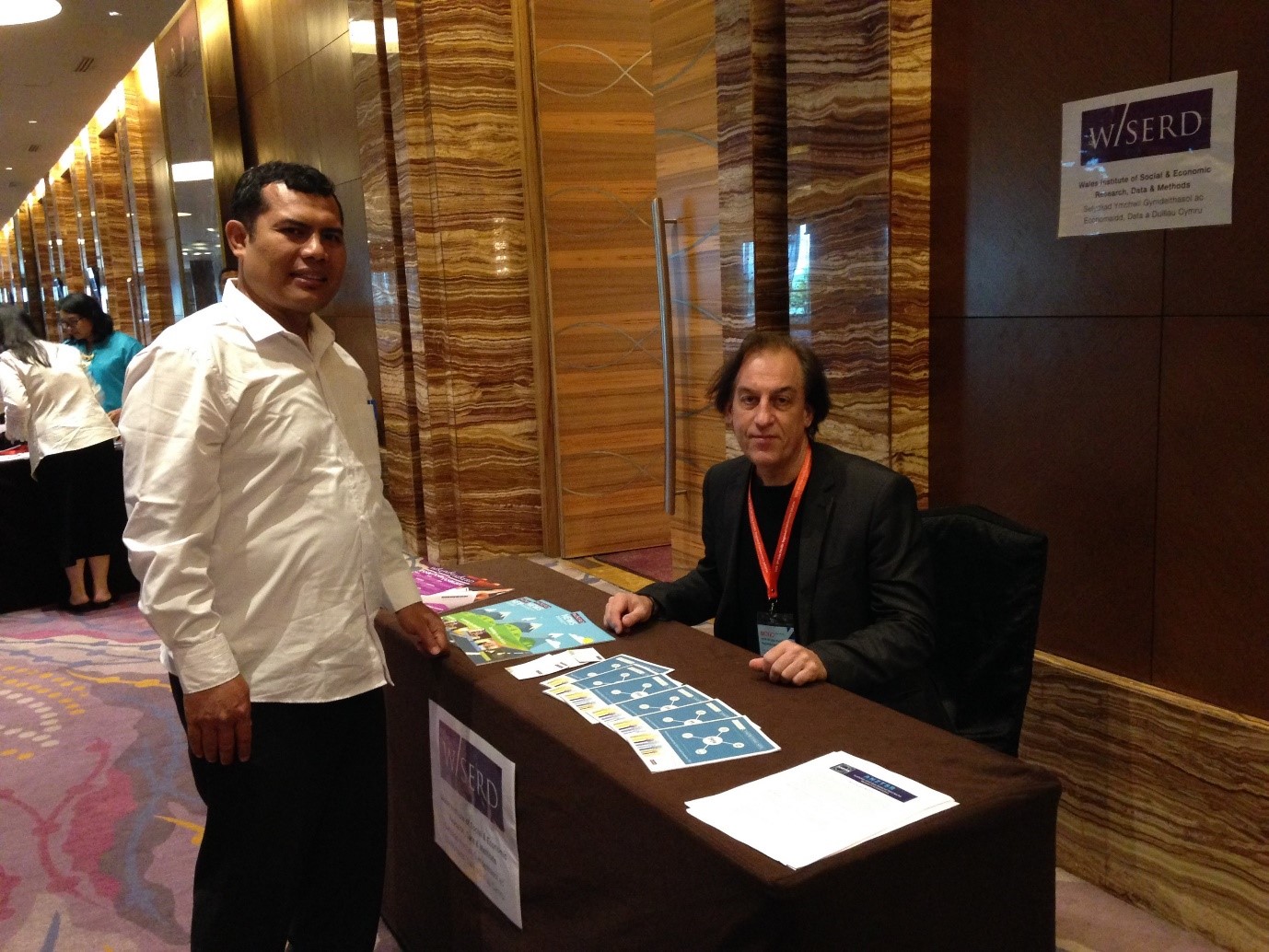WISERD has been sharing research on civil society at the International Society for Third Sector Research’s tenth Asia Pacific Regional Conference hosted by CECT Trisakti University, Jakarta, Indonesia.
The WISERD stall at the conference did brisk business, attracting interest from many senior academics, students, policy-makers and members of third sector organisations attending the event.
Presentations included that by Professor Paul Chaney (pictured above), who discussed new WISERD research: ‘Comparative Analysis of Civil Society and State Discourse on Disabled People’s Rights and Welfare in South East Asia 2010-16’. In the presentation he outlined how, over the next quarter century it is likely that, from a global perspective, Southeast Asian countries will experience the highest level of growth in the number of disabled people. It is therefore significant that, over the past decade, the region’s governments have at last ratified the United Nations Convention on the Rights of Persons with Disabilities (CRPD). At this critical juncture, and in the face of ongoing human rights issues in several territories, Prof Chaney’s presentation detailed comparative analysis of state and civil society organisations’ (CSOs) discourse on CRPD implementation. The discourse derived from the hundreds of reports that CSOs submit to the Universal Periodic Review, the United Nations’ five-yearly official review process.
He argued that, while governments have espoused a participatory approach to fulfilling their CRPD obligations, contemporary practice falls short. Disabled people currently experience barriers to shaping policy and accessing social welfare. There is a “disconnect” between state and civil spheres that hampers effective implementation based on partnership working and knowledge exchange. In turn, this raises issues of governments’ commitment to their CRDP obligations and points to the endurance of the Medical Model of Disability across the region that sees the disabled persons’ impairment or health condition as ‘the problem’. The focus is therefore on ‘fixing’ or ‘curing’ the individual. In contrast, the CRPD anticipates that The Social Model will be applied. Developed by disabled people, it takes the view that society creates barriers that ‘disable’ people from participating fully and on an equal basis with others and that these barriers must be removed.
More details on the full paper, published in the Asian Studies Review, are available here.

